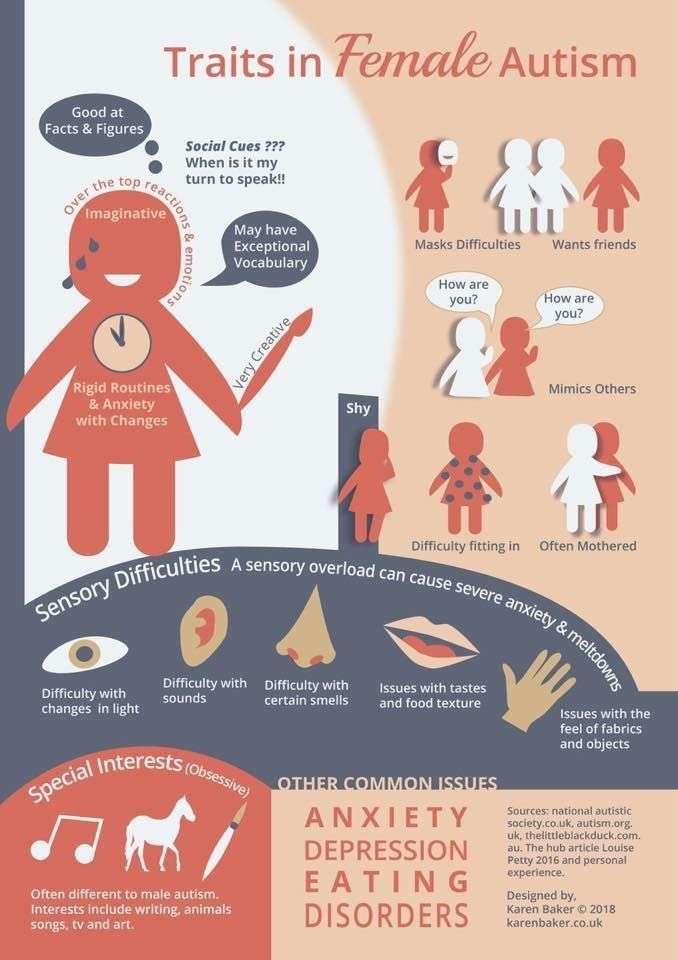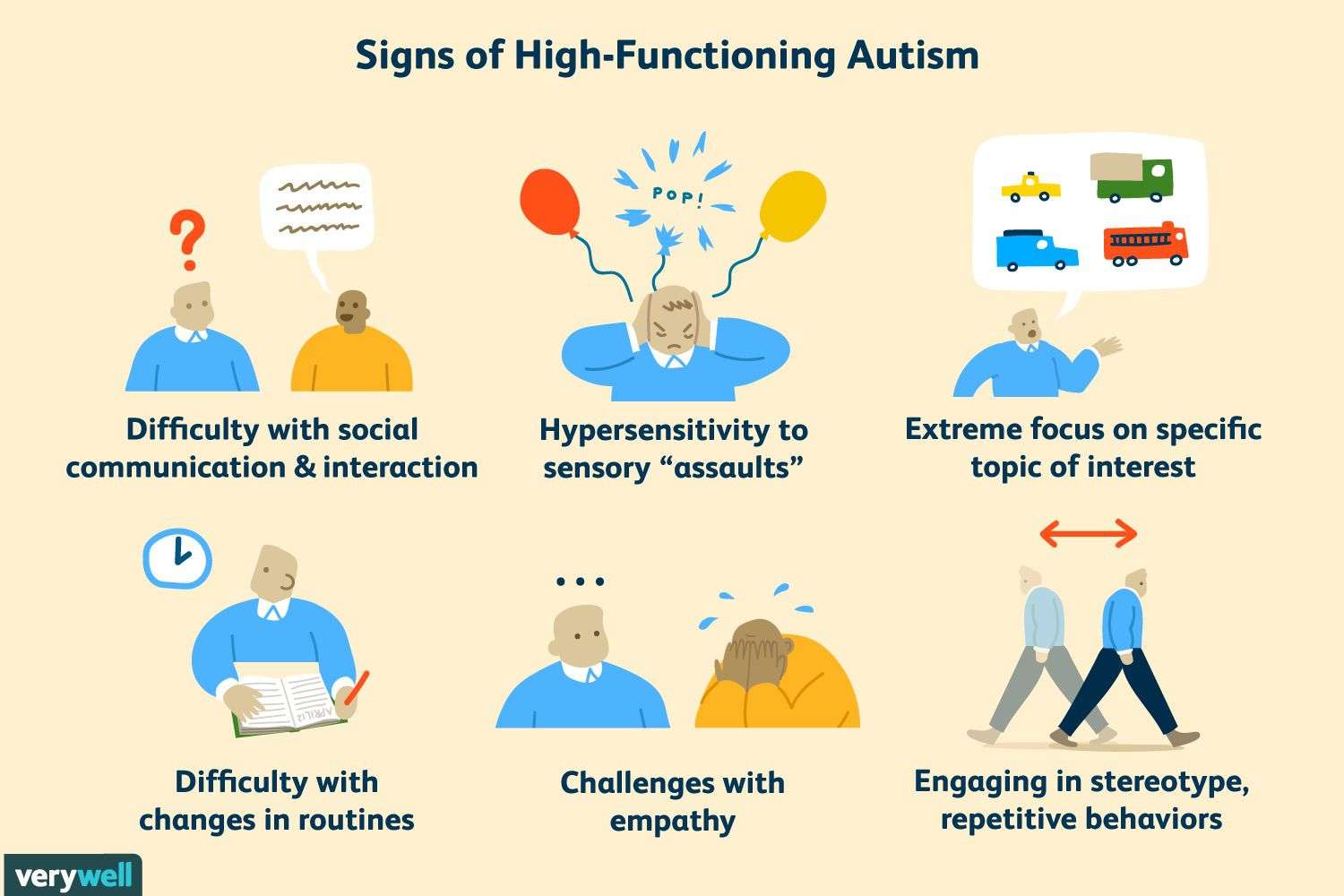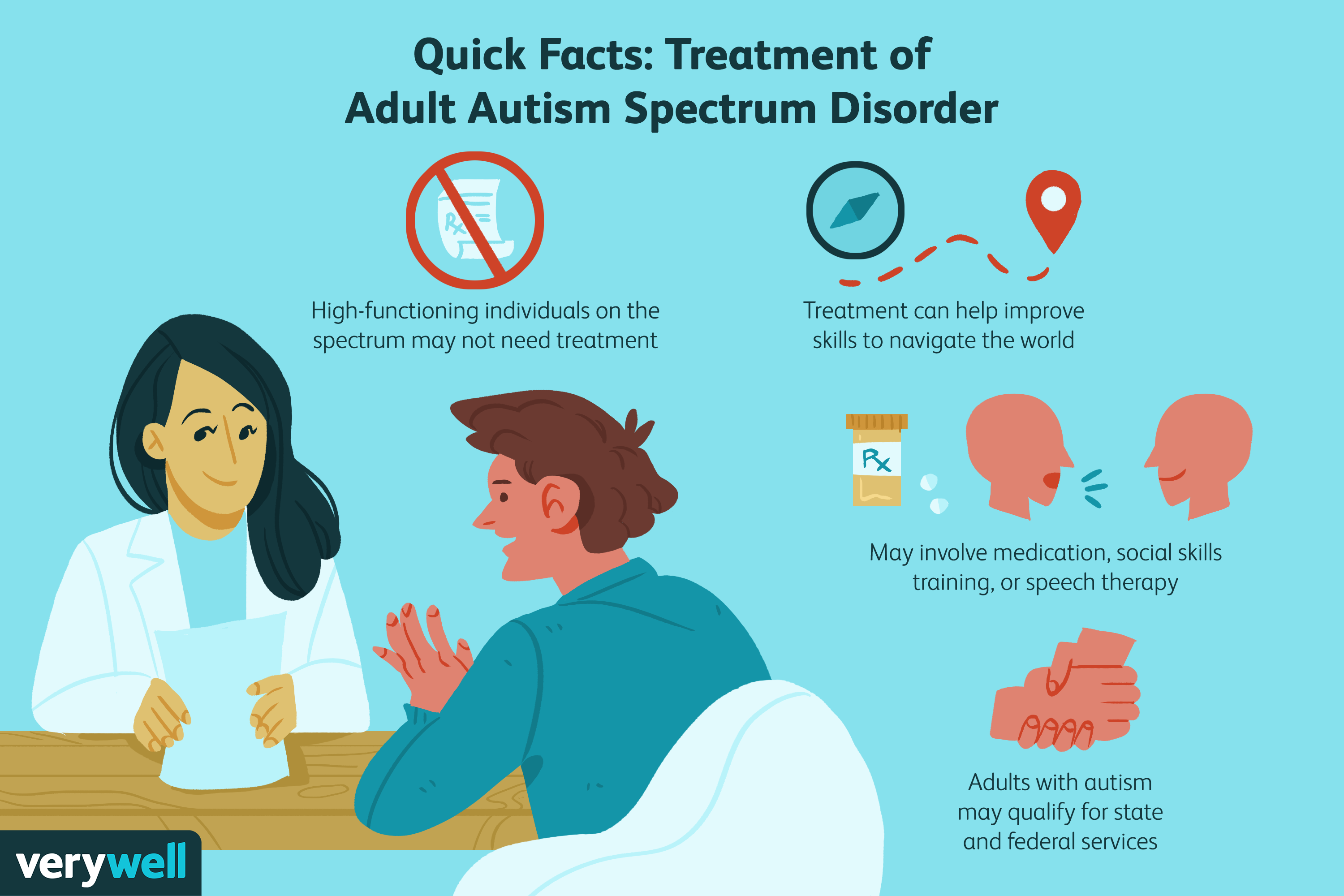A Struggle With Social Imagination
Social imagination refers to the ability to imagine what another person or persons may be:
- feeling
- thinking
- experiencing
Being able to guess reasonably accurately what another person is thinking or feeling given the present context or situation is an important part of social connectedness and the ability to relate to others.
Autism can often lead to a lack of social imagination that makes it difficult for those with the condition to understand the behavior and intentions of those around them. Those on the spectrum might have trouble relating to others or picking up on social cues. They may find it hard to imagine anything that does not fall within the boundaries of their set parameters.
Unfortunately, this symptom of autism is often perceived as a lack of creativity. It would be wrong to assume this since autistic people are typically exceptionally creative.
Due to their trouble relating to others, autistic people often find it hard to follow social rules or interpret others:
- thoughts
- behaviors
- feelings
This challenge impacts their ability to feel and show empathy. This is why individuals with autism can sometimes be perceived as aloof.
Just like with developing social skills, social imagination skills can be improved upon through:
- role-playing
- interpretive play
- experiential learning
What Are The Characteristics Of Autism In Adults
Autism is characterized by numerous traits and symptoms, varying from one person to the next. Just like no single person is exactly the same to another, no person with autism is the same. That is why autism is considered a spectrum disorder. When looking at a rainbow, there is an array, or spectrum, of colors, and each color has countless shades. This is also true of the autism spectrum. Think of the colors and shades as the particular, one-of-a-kind characteristics of each individual with autism spectrum disorder.
Individuals with autism spectrum disorder face a unique set of challenges in their daily lives. The challenges can alter their perception of the world and people around them in ways that others do not always understand. Some autistic adults may exhibit symptoms that resemble attention deficit hyperactivity disorder.
An autism diagnosis can cause confusion and frustration on both ends, but knowledge is power. Understanding the signs of autism and how autism spectrum disorder impacts a persons life can help both parties improve their interactions and communication. While autistic personality traits and symptoms can differ from one person with autism to another, there are some general characteristics of autism in adults.
Here are five general autistic traits in adults with autism spectrum disorder.
Why Signs Of High
The signs of high-functioning autism are often entirely overlooked, primarily when autism affects adults, adolescents, or teenagers. More severe forms of autism are usually identified when someone is very young. Additionally, individuals with high-functioning autism are generally extremely intelligent or gifted.7
Throughout their life, adults with autism spectrum disorder learned how to hide their struggles related to autism. The mechanisms autistic adults use to mask their difficulties include forcing themselves to engage in eye contact or attending social gatherings that a child with autism may avoid. These efforts are often effective and convincing to the point where it is difficult or near impossible for others to recognize the challenges they face.7
Don’t Miss: Pros And Cons Of Adhd Medication
Social Communication / Interaction Behaviors May Include:
- Making little or inconsistent eye contact
- Appearing not to look at or listen to people who are talking
- Infrequently sharing interest, emotion, or enjoyment of objects or activities
- Not responding or being slow to respond to ones name or to other verbal bids for attention
- Having difficulties with the back and forth of conversation
- Often talking at length about a favorite subject without noticing that others are not interested or without giving others a chance to respond
- Displaying facial expressions, movements, and gestures that do not match what is being said
- Having an unusual tone of voice that may sound sing-song or flat and robot-like
- Having trouble understanding another persons point of view or being unable to predict or understand other peoples actions
- Difficulties adjusting behaviors to social situations
- Difficulties sharing in imaginative play or in making friends
Treating Autism With Alternative Therapies

Many people with chronic conditions like ASD use therapy and medication in tandem with alternative treatments, though their effectiveness and safety are not as well researched. Parents of children with ASD and adults with the condition should consult with a physician before taking any supplements or trying alternative methods.
Amino acids, which can act as neurotransmitters, may help regulate serotonin levels of people with ASD. Taurine may improve visual learning and L-Carnosine may help repetitive verbal habits for people with ASD1.
Auditory integration training can help improve auditory processing deficits and concentration. It involves listening to electronically modified music, voice, or sounds to improve function1. This can be beneficial for people with ASD who have trouble listening, or focusing.
B6/Magnesium supplements have been a popular complementary treatment for ASD for over 20 years. Research studies have reported mild improvement in symptoms with their use1.
b-Calm2 is an MP3 player loaded with audio tracks specifically developed as audio sedation to help people with ASD screen out sounds that can cause distraction, induce stress, and adversely affect social and academic performance. The tracks combine two types of sounds: live recordings of nature sounds and white noise. At low levels, people can converse and interact. At higher volume, the tracks can cover up voices and noise to reduce sensory overload.
Don’t Miss: Does Autism Come From The Mother Or Father
Diagnostic Criteria For 29900 Autism Spectrum Disorder
To meet diagnostic criteria for ASD according to DSM-5, a child must have persistent deficits in each of three areas of social communication and interaction plus at least two of four types of restricted, repetitive behaviors .
Specify current severity:
Severity is based on social communication impairments and restricted, repetitive patterns of behavior.
Symptoms Of Autism Spectrum Disorder In Adults
Common symptoms of autism in adults include:
- Difficulty interpreting what others are thinking or feeling
- Trouble interpreting facial expressions, body language, or social cues
- Difficulty regulating emotion
- Trouble keeping up a conversation
- Inflection that does not reflect feelings
- Difficulty maintaining the natural give-and-take of a conversation prone to monologues on a favorite subject
- Tendency to engage in repetitive or routine behaviors
- Only participates in a restricted range of activities
- Strict consistency to daily routines outbursts when changes occur
- Exhibiting strong, special interests
Autism spectrum disorder is typically a life-long condition, though early diagnosis and treatment can make a tremendous difference.
Also Check: Assessment For Adult Adhd
Understanding Autism In Women
Autism is rarer in females than in males. In fact, one major researcher in the field, Simon Baron-Cohen, wrote that autism is a manifestation of the extreme male brain.
There does seem to be a real difference in the number of females who are actually diagnosed with autism versus the number of males. But this so-called “female protective effect” is still being explored.
In recent years, it has become clear that autism is underdiagnosed in females. There are a number of reasons for this:
- Girls are more likely to internalize anxiety related to autism instead of behaving aggressively, they are more likely to become depressed or anti-social.
- Most cultures make it acceptable for girls to be “shy” whereas shyness is less acceptable in boys.
- When girls with autism focus exclusively on a particular interest, they are more likely than boys to choose a socially acceptable fascination such as unicorns or dolls.
Because fewer females have autism, fewer females with autism have been included in studies. More attention is now being paid to how autism manifests in females.
I Have What Finding Out As An Adult That Youre On The Autism Spectrum
Even though two of Maria Davis-Pierreâs children have autism spectrum disorder, it never occurred to her that she might be on the spectrum, too. Now 38 and a licensed mental health therapist, Davis-Pierre had long blamed her symptoms on ADHD, with which she was diagnosed in college. It wasnât until her psychiatrist mentioned it that the possibility even crossed her mind.
âMy ADHD had been getting worse and when I talked to my psychiatrist about my symptoms he asked if Iâd ever been tested for autism,â Davis-Pierre says.
Looking back, it all makes sense. But for Davis-Pierre, who had become accustomed to masking her symptoms, it was still a shock. She didnât realize her anxiety, problems with social interactions, and stimming , could all be characteristics of the diagnosis. She also has a high IQ, like many high-functioning adults with autism spectrum disorder.
âI never thought, âAutism.â I just thought these traits were a part of my personality,â says Davis-Pierre, who is now a licensed mental health counselor in West Palm Beach, FL.
She was also feeling exhaustion, depression, and fatigue that are common in adults on the autism spectrum. They often spend so much time hiding symptoms and trying to figure out social cues that being around other people who are not on the spectrum is exhausting. Itâs called âautistic burnoutâ and itâs one of the main symptoms that San Diego therapist Joel Schwartz, PsyD, sees in his practice.
Recommended Reading: What Type Of Disorder Is Autism
Restrictive And Repetitive Behaviors
- You have trouble regulating your emotions and your responses to them.
- Changes in routines and expectations cause strong feelings that may include outbursts or meltdowns.
- When something unexpected happens, you respond with an emotional meltdown.
- You get upset when your things are moved or rearranged.
- You have rigid routines, schedules, and daily patterns that must be maintained no matter what.
- You have repetitive behaviors and rituals.
Comorbid Psychiatric Disorders Are Common
Many people with ASD also have other psychiatric disorders,, which clinicians should keep in mind when seeing an adult seeking evaluation for ASD.
Attention-deficit/hyperactivity disorder is present at higher rates in patients of average intellectual function with ASD than in the general population.
Anxiety disorders, including obsessive-compulsive disorder, were found to often coexist with autism in a sample of adults with autism without intellectual disability,, and approximately 40% of youths with ASD have at least 1 comorbid anxiety disorder.
Mood disorders are also prevalent in adults with ASD, with a small study showing that 70% of adults with DSM-IV Asperger syndrome had at least 1 depressive episode in their lifetime.
Don’t Miss: What Is The Difference Between Autistic And Down Syndrome
Finding Resources And Support
It can be stressful to go through the process of pursuing an adult autism diagnosis but its likely more challenging to live your whole life without one, trying to adapt on your own.
Dr. Ferrari recommends looking for community resources and trying to connect with other people who have autism. This can help you feel less alone and recognize your potential, and can also encourage you to become a self-advocate who speaks up for yourself and your needs.
Its important that people with autism at all stages, including adults, have the opportunity for an excellent quality of life, including having meaningful work and quality relationships, she says. It can be really empowering to get a diagnosis that allows you to see your differences as strengths.
Restrictive / Repetitive Behaviors May Include:

- Repeating certain behaviors or having unusual behaviors, such as repeating words or phrases
- Having a lasting intense interest in specific topics, such as numbers, details, or facts
- Showing overly focused interests, such as with moving objects or parts of objects
- Becoming upset by slight changes in a routine and having difficulty with transitions
- Being more sensitive or less sensitive than other people to sensory input, such as light, sound, clothing, or temperature
People with ASD may also experience sleep problems and irritability.
People on the autism spectrum also may have many strengths, including:
- Being able to learn things in detail and remember information for long periods of time
- Being strong visual and auditory learners
- Excelling in math, science, music, or art
Also Check: What Is Autism Like Video
Can You Have Asd And Adhd
Yes, you can.
And, since the APA’s Diagnostic and Statistical Manual, Fifth Edition was released in 2013, making it possible for the first time for children and adults to be diagnosed with both autism and ADHD, many people now have a dual diagnosis.
Both ASD and ADHD are neurodevelopmental disorders, meaning brain development has been affected in some way.
As many as 50%-70% of individuals with autism spectrum disorder also have attention deficit hyperactivity disorder .
According to Children and Adults with Attention Deficit Hyperactivity Disorder , both conditions affect the central nervous system, which is responsible for movement, language, memory, and social and focusing skills.
A 2021 meta-analysisof 56 studies found that 50%-70% of individuals with autism spectrum disorder also present with comorbid attention deficit hyperactivity disorder .
Strong Dislike Of Change
Many people with high-functioning ASD have strong negative reactions to changes in their environment. They might become anxious if something new happens, even if it’s positive. They might also be unable to cope with sudden changes in plans or schedules. For example, if they are forced to choose a different brand than their usual cereal provider, they might become highly activated and irritated.
Read Also: Does Watching Tv Cause Autism
High Functioning Autism In Adults
High-functioning autism is not an official term or diagnosis. This term informally refers to individuals with an autism spectrum disorder who possess essential life skills and can live independently.4
The term high-functioning autism may describe someone with ASD when they are someone who: 5
- Received their diagnosis as an adult
- Functions well in school and at work
- Does not display any noticeable language differences or developmental delays
- Has the ability to live on their own
Autism In Adults: Symptoms Treatment And Coping Strategies
KausarTarique·March 17, 2022
Autism spectrum disorder is a neurodevelopmental disability characterised impairments in three key areas of functioning: social interactions, verbal and nonverbal communication, and activities and interests. Autism is characterised extreme lack of responsiveness, a lack of ability to relate to others, obsessive preoccupation with the sameness, restricted interests, repetitive behaviours, and significant difficulties with language and cognition. ASD usually manifests early in life, with reliable diagnosis occurring the age of three and as early as 18 months. However, there is a substantial portion of high functioning individuals with ASD that remain undiagnosed until relatively late in life. Adults with autism respond well to interventions and treatment because they are significantly included in their community and participate in social settings. Consequently, the individuals do well as adults. On the other hand, those with intellectual disability or severe autism generally have poorer life outcomes.
Recommended Reading: Is Asperger’s A Type Of Autism
Repetitive Behaviors Or Stimming
Engaging in certain physical motions or making certain sounds repetitively can relieve stress or anxiety for an adult living with autism or ADHD.
This is self-stimulating behavior, also called stimming, and people with ADHD and throughout the neurotypical spectrum do it as well.
The difference is that autistic adults may have more visible/obvious ways of stimming: Instead of drumming their fingers on a table, a person with autism may rock back and forth or flap their hands.
Who Can Make A Diagnosis
Many autism centers are primarily child-focused, so as you age out of them and move into adulthood especially if you have deficits that werent caught as a child finding support can become a huge issue, Dr. Ferrari says.
Try finding an adult psychiatrist or psychologist in your area who works with people who have autism. But if you cant find one , Dr. Ferrari recommends reaching out to a pediatric psychiatrist or psychologist to ask if theyre comfortable assessing for and diagnosing ASD in adults.
Recommended Reading: How To Tell Your Kid They Have Autism
What To Do If You Suspect You’re Living With Adult Autism
The symptoms of ASD listed above are not an exhaustive list, and an autism spectrum disorder diagnosis must be made by a licensed medical professional, such as a psychologist or psychiatrist.
For some adults, an ASD diagnosis can provide comfort, relief, and a clearer path forward. You may also want to speak with a therapist who specializes in autism spectrum disorder.
While autism spectrum disorder is a life-long condition, some therapeutic treatmentsincluding applied behavioral analysis, cognitive behavioral therapy , and certain medicationscan help manage symptoms.
Causes And Risk Factors

Researchers dont know the primary causes of ASD, but studies suggest that a persons genes can act together with aspects of their environment to affect development in ways that lead to ASD. Some factors that are associated with an increased likelihood of developing ASD include:
- Having a sibling with ASD
- Having older parents
- Having certain genetic conditions
- Having a very low birth weight
Recommended Reading: How Soon Can You Tell Autism